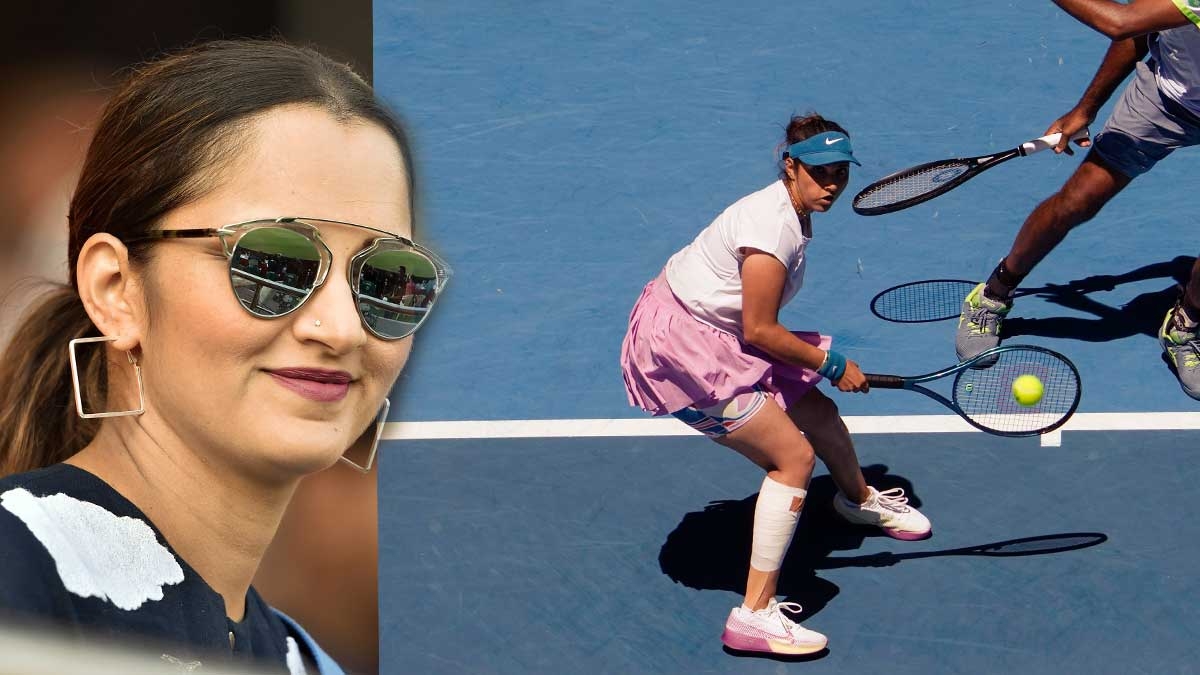
If only you ever get a chance to go back in time! Sania told the result of which match she would like to change
Not having the fear of losing in your mind also gives you victory.
Sania said in an interview to PTI, “The thing that made me so aggressive was not having the fear of losing in my mind. For me, tennis always was and always has been a very, very important part of my life, but it’s not my whole life. And I always played with that mindset. I think a lot of people get defensive because of the fear of losing.”
But it’s not that the defeat didn’t make any difference to Sania but she knew that I will come back again next week. This was the mindset. The loss affected me for a while, she says, but I always knew it wasn’t the end of the world. It was just losing one tennis.”

The forehand game has always been dangerous.
Sania’s amazing use of her forehand to angle the ball has brought much success in a nearly two-decade-long career in which she won three women’s doubles Grand Slam trophies and as many mixed doubles titles.
Sania says that she got her forehand power as a gift and worked a lot on it. Sania says, “I think it was a mix of both. A lot of work was done to make the shot confusing, where people couldn’t read it. Repeatedly hit the ball at different angles on the court. Repetition proved to be the most important thing for me. It was the practice.

Leaving singles to choose the easy way out?
Sania started with western grip, but on the advice of coaches, she changed it to semi-western grip. Somewhere due to this grip, he later suffered a painful wrist injury which forced him to withdraw from the singles. To this Mirza says, “I really don’t know. My joint keeps a lot of movement, so it could be because of that. I don’t know the reason.”
Sania made a comeback after the injury but stopped playing singles. Or played doubles or mixed doubles. In such a situation, there is also an opinion that he chose the easy way by leaving singles. To this she says, “I don’t react to it, I really don’t care what people say.”

no matter what people say
Sania said that her singles success gets overshadowed by her performance in doubles. If there were no doubles, where would she have been able to earn so much fame. He said, I am very grateful for the doubles. I had a very good singles career where I was in the top-30. Then I moved to doubles as after three surgeries my body was not able to handle singles and it was a right decision. It doesn’t matter what people say. Success is more visible in doubles because I was number one in doubles.”

When did you feel strongest and weakest?
When did Sania feel most strong and weakest? “The weakest I felt was when I had a really serious wrist injury during the 2008 Olympics. I went through a lot of mental problems. I was in depression. Didn’t know if I would be able to play again. My The mind was feeling very weak.”
“And where I felt strongest was the time from late 2014 to mid-2016. Almost two years of my sporting life were incredible.”

if i could go back in time to play again
Sania has medals in multi events like Commonwealth Games and Asian Games, but has not won an Olympic medal. The closest she came was in 2016, when she and Rohan Bopanna competed in the bronze play-off, but lost to the Czech pair of Radek Stepanek and Lucie Hradceka.
In conclusion, Sania says, “I am very satisfied with whatever I have achieved. It has been amazing to represent India in four Olympics. But if I can go back in time and play again, that bronze medal will Will it be the match or the match before that when we were in the semi-finals.